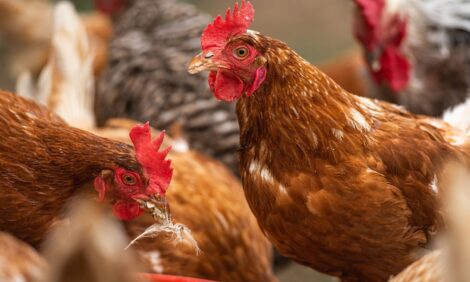



Weekly Overview: Agriculture Must Adapt to Survive
ANALYSIS - FAO's Deputy Director General has said that human survival depends on agriculture adapting to climate change and that genetic resources are vital for this adaptation. Native breeds have a role to play in a sustainable livestock industry, according to one speaker at a conference in the UK this week, and another outlined how advanced plant breeding techniques have the potential to solve some of the world's most pressing issues. There is also news of bird flu in China, South Africa and the UK.Resources will be crucial for survival, as people will need to produce sufficient and nutritious food for a growing population, FAO Deputy Director-General Dan Gustafson said, addressing the Commission on Genetic Resources for Food and Agriculture.
The Commission, the only intergovernmental body to specifically address all matters related to the world's gene pool for food and agriculture, is marking its 30th anniversary and is meeting in Rome this week.
"FAO believes that adaptation of the agriculture sector is not merely an option but an imperative for human survival, and genetic resources will form an essential part of any adaptation strategy," he said.
"Ensuring food security in the face of climate change is among the most daunting challenges facing humankind," Mr Gustafson said.
"Climate change impacts are expected to reduce agricultural productivity, stability and incomes in many areas that already experience high levels of food insecurity. Yet world agricultural production must increase 60 per cent by the middle of this century - less than 40 years from now - to keep pace with the food requirements of the world's growing population," he added.
"Genetic resources for food and agriculture play a crucial role in food security, secure livelihoods and environmental services. They also play a crucial role in enabling crops, livestock, aquatic organisms and forest trees to withstand climate change-related conditions."
For farm livestock specifically, native breeds have a role to play in a sustainable livestock industry, according to speakers at a conference organised by the Rare Breeds Survival Trust at the University of Nottingham in the UK this week.
At the same meeting, an eminent plant scientist outlined how advanced plant breeding techniques have the potential to solve some of the world's most pressing problems - including the prevention and treatment of human and farm animal diseases and more sustainable food production.
There have been further developments on bird flu in China and elsewhere over the past week. In birds, the virus - thought to be of the low-pathogenic type - has been found at a turkey farm in the UK and low- and highly pathogenic types have been reported at ostrich farms in South Africa.
In China, the concern is over human cases of the avian influenza A(H7N9) virus; up to 17 April, a total of 82 patients have been confirmed as having the virus and 17 have died. Still, the source of infection has to be established. China's poultry industry organisation estimates the losses to poultry-related enterprises nationwide to have exceeded 10 billion yuan (US$1.6 billion) since the first case of H7N9 bird flu was discovered.









